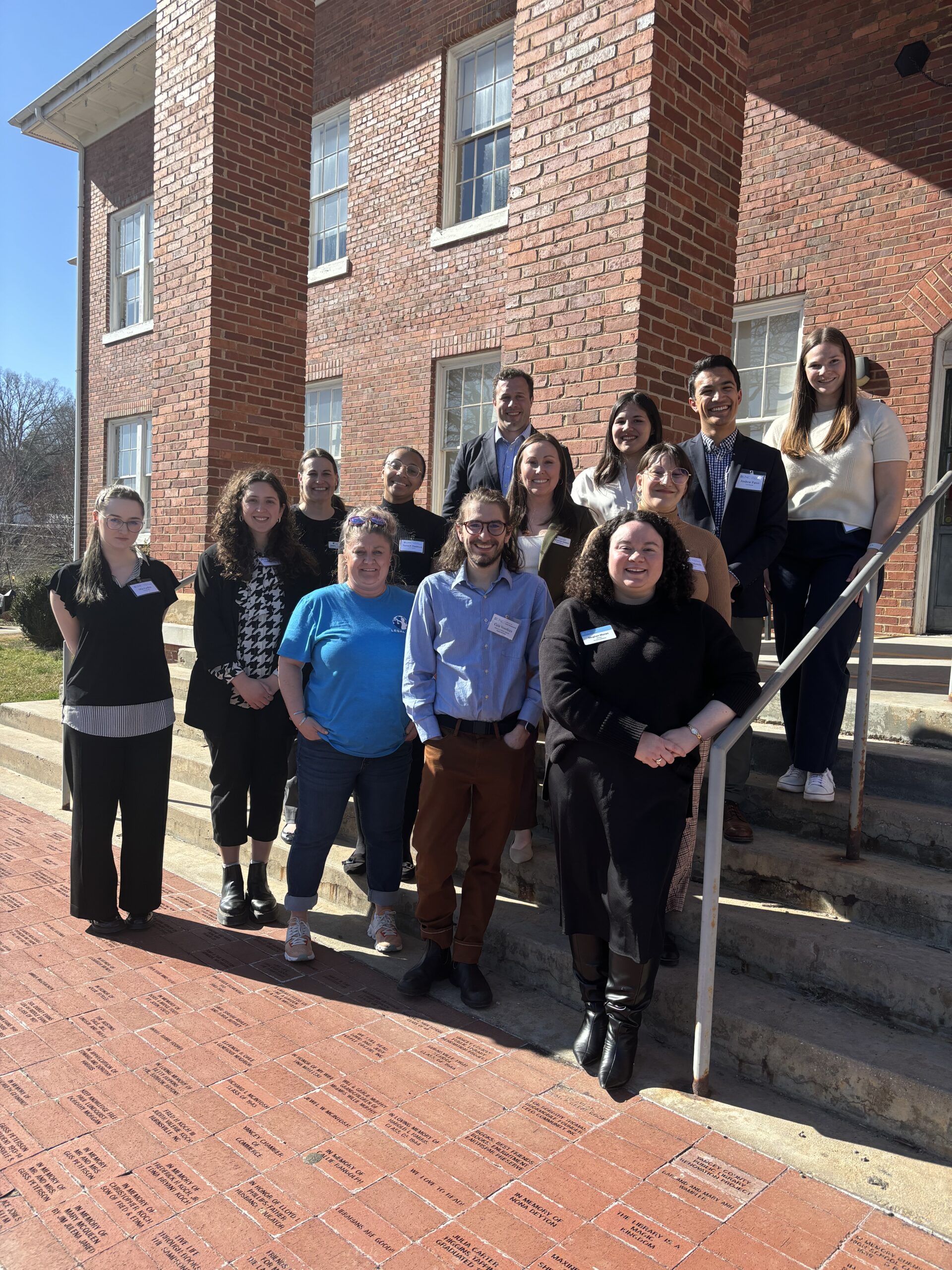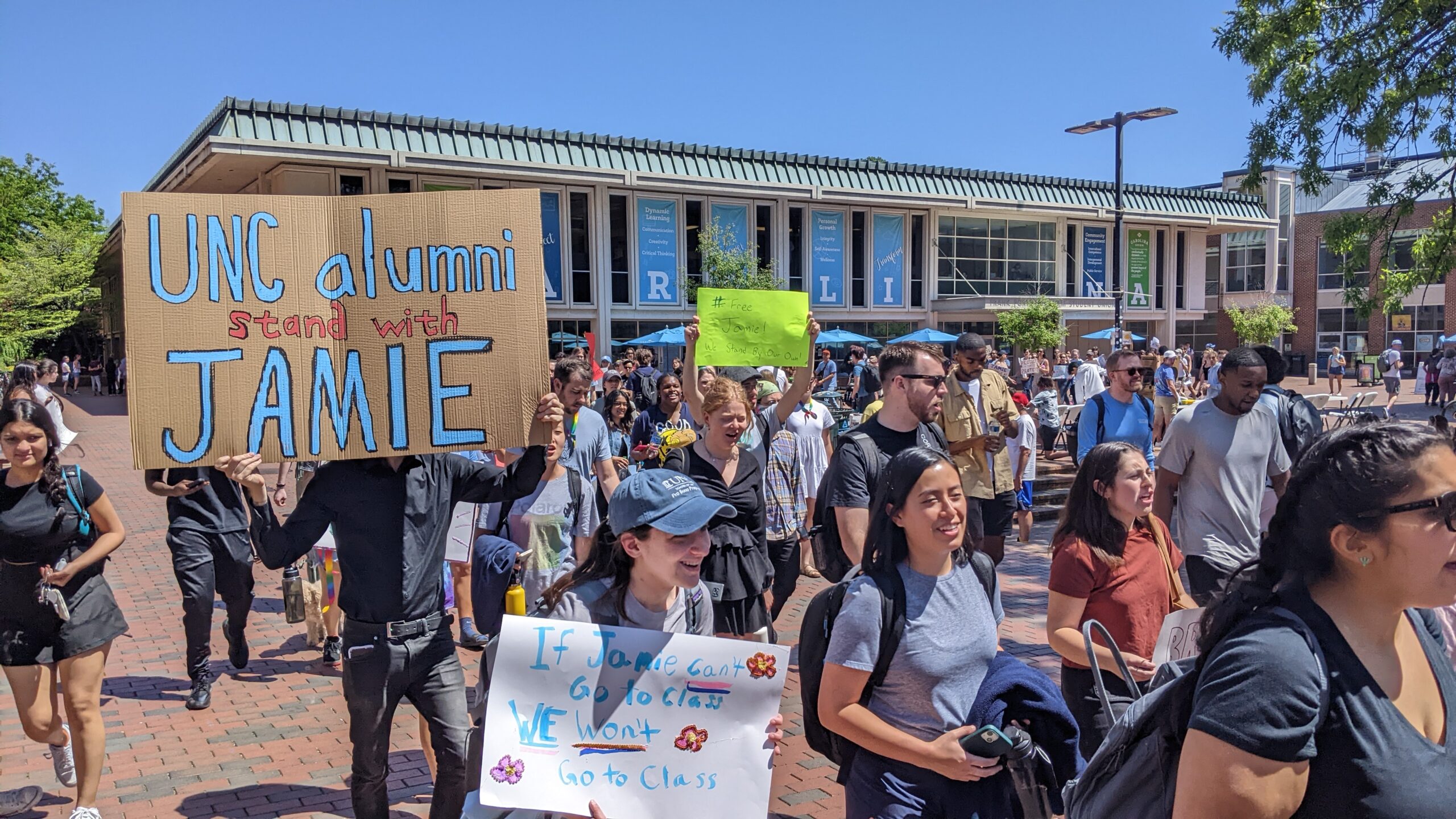This year’s election cycle brought dozens of issues to the center of public discussion and debate. But countless other issues flew under the radar – including one that’s the subject of an important bill currently moving through Congress, and the subject of an acclaimed new book by a faculty member at UNC.
The bill is HR 9110, the “Ending Corporate Bankruptcy Abuse Act of 2024,” which is trying to address something called the “Texas two-step.” That’s a legal maneuver where profitable corporations try to escape paying damages from lawsuits by splitting themselves into two companies: Company A assumes the debt then declares bankruptcy to cancel it out, while Company B continues on as if nothing had happened. (Johnson and Johnson is currently attempting such a strategy to evade a suit from people who say they got cancer from using their talcum powder.)
The “Texas two-step” is a big issue in and of itself – but it’s also just the tip of the iceberg when it comes to the larger issue of bankruptcy law. Bankruptcy exists as an important protection for individuals and organizations, but critics say the current law has been written – and is being used – to favor big corporations and shield bad actors, ultimately hurting some of the very people it’s ostensibly meant to help.
That’s the subject of the new book “Unjust Debts: How Our Bankruptcy System Makes America More Unequal,” written by UNC law professor Melissa Jacoby.
Professor Jacoby recently discussed the book with 97.9 The Hill’s Aaron Keck. Click here to listen to their full conversation; the transcript below has been edited for clarity.
Aaron Keck: What should ordinary people know about bankruptcy law?
Melissa Jacoby: I know that bankruptcy seems complicated, and it has a lot of jargon – and yet it’s one of the most important laws you might not be thinking about, in terms of how it affects you and your neighbors, and our economy, and our society. Bankruptcy is super-important in a capitalist economy. It does provide a safety valve for when financially distressed families and businesses need to make some changes and move on – (but) those very features of bankruptcy also are very attractive for other purposes. The idea of canceling legal obligations that are otherwise enforceable – you can find (that) in bankruptcy, but not really anywhere else. So companies, big companies especially, and powerful people, look to bankruptcy as almost a legal Swiss Army knife to solve different kinds of problems, using those tools, and not fulfilling the function the bankruptcy system was designed for.
Keck: What are some of the ways that the system enables them to do that?
Jacoby: The law has inequities, in terms of the treatment of humans in financial distress versus big companies. Humans get a lot more value judgments, and twists and turns, for what they have to show in order to get bankruptcy relief. (And) the system has disproportionately negative effects on Black Americans: they pay more for access to (the system), and get less relief overall. And that’s just the tip of the iceberg: even when a city files for bankruptcy, civil rights claimants often don’t get a seat at the negotiating table. And so that’s disproportionately hurting Black and brown residents of those cities.
Keck: I want to talk about the title for a second: “Unjust Debts.” You go into detail about the different kind of iterations of what “just” means in that title, right?
Jacoby: I have iterations of what “just” means as well as what “debt” means. The bankruptcy law defines “debt” beyond your wildest imagination: not only in the scope of what’s covered, but also the timing. Big corporations want to change people’s rights, far into the future in some of these cases, (affecting people) who don’t even know (yet) that they’ve been injured. So the concept of debt in bankruptcy is huge. It (relates to) any legal liability, and that makes it intersect with climate change, and sexual harassment, and the opioid crisis and the like. And it doesn’t have the tools to deal with those things.
Keck: So what would you change, if you had the magic button on your desk and you could push it and make bankruptcy law what it should be? Or more to the point: if people are interested in the issue and they’re agitated about it and they want to write to their legislator, their member of Congress, and say, “Hey, we need to change the law,” what should the change be?
Jacoby: The first thing is to make personal bankruptcy a lot more simple and straightforward. That’s an idea that has the support of economists. There’s a bill already in Congress that does that, and that would not only help all debtors – and be fair to creditors as well – but would (also help) reduce the very severe racial disparities that we find in personal bankruptcy…
But let me close by looping back to what you’ve just said about writing your member of Congress. People think of bankruptcy as this fringe issue, but these narrower pieces of the law are where unfairness can come from, because people aren’t paying attention. (But) they also can be easier to fix. Bankruptcy legislation often has been bipartisan. The interest, in changing what big corporations can do to limit the rights of people injured by products, is bipartisan. So these narrower issues are affecting things that you care about, but (they) also could have some effect on reducing unfairness.
Photo via the UNC School of Law.
Chapelboro.com does not charge subscription fees, and you can directly support our efforts in local journalism here. Want more of what you see on Chapelboro? Let us bring free local news and community information to you by signing up for our newsletter.











